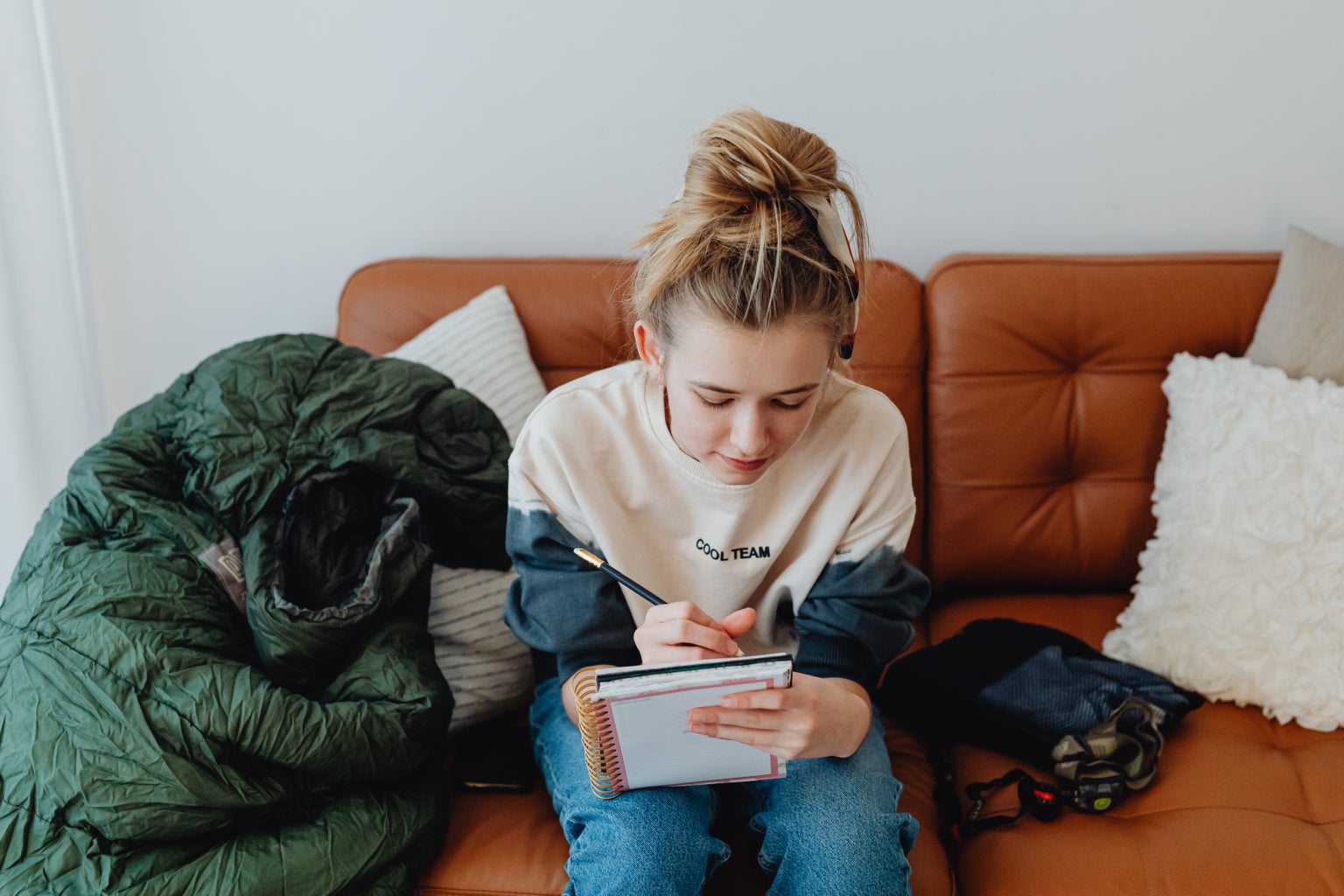Growing up, I spent most of my time either playing dress up in my room and acting out scenes from movies or writing in my journal. More often than not, I was writing.
I remember first writing about my dad being in Iraq when I was in third grade. It was his second time in the Middle East and my family found out that we would also be moving. However, in class, I wrote about how I imagined his assignment.
In my 9-year-old mind, it was sandy and hot. My dad was surrounded by barbed wire and he slept on a cot under a tent. The sun was sweltering during the day, but the moon was freezing at night. Obviously, this wasn’t the most accurate depiction of Iraq and it was coming from brief Skype calls that fed my imagination at night.
When I moved to Hawaii, I didn’t write as much until I started middle school — well, specifically when I started therapy. My therapist told me about how journaling can help with negative thoughts. If I ever felt like I was spiraling, I could open up my Lisa Frank diary and write anything — so I wrote everything.
It got to the point that I was considered the “notebook girl” whenever I went somewhere because people always saw me with a journal or notebook or a pad of paper.
As I moved on to high school, I decided to take more creative liberties in my writing. I moved away from fictitious short stories and journaling to songwriting and poetry — and maybe a little bit of fanfiction.
Around my sophomore year, I decided to apply for a writing competition at my school. In less than 400 words, I wrote about a group of five girls going to war against the Greek gods. While there can be more added and fixed, it received first place out of everyone who applied.
For me, it made me realize that maybe I could write for the rest of my life. I began writing in every margin on my papers, scribbling haphazardly as microstories filled up the sides of my pages when I should’ve been paying attention to whatever was being spoken about in class.
The next year, I wrote three different stories for the competition. I ended up submitting a piece influenced by a photograph of an alley. A story of a doctor madly in love with his wife, creating a medication that would lead to the downfall of society. The scene? His daughter, now a teenager, is trying to escape the victims of her father’s mistake.
While I didn’t win first place, I did have the satisfaction of the judges told me that they hope to see my future writing published.
I won’t lie, it boosted my confidence.
However, when I began college, I neglected this part of me — the part that loves to see worlds unfold before herself and play God with her characters.
So, in the winter semester of sophomore year, I took a creative writing class. Initially, it was for pathways. However, as I wrote, I found myself wanting to never leave this class. It was a doorway to something that I wasn’t offered before: the opportunity to explore my craft.
After being told it would be a waste and to focus on my Spanish minor, I applied for a creative writing minor last year — despite the protests from both my academic advisor and my parents.
Now, this isn’t meant to be a story about my decision to receive a minor. In fact, it’s only part of what I want to do.
Writing, for me, is an escape. It allows me to explore parts of myself that I wouldn’t be able to do in regular life and it connects me to more people than I’ve been able to in the past.
While I like writing articles for Her Campus at Virginia Tech, creative pieces are the ones that bring me the most joy. They distract my mind from the problems in my life, help me find solutions to said problems, and give me the opportunity to meet people with the same passions as mine.
I don’t know who’d I be without writing. Maybe I’d be a STEM major or maybe I’d feel lost in my thoughts. Either way, I’ve found out more about myself writing within A4 notebook margins than I think I did anywhere else in my life.
For that, I’m forever grateful Mrs. Rupprecht handed me a purple notebook and said, “Write.”




